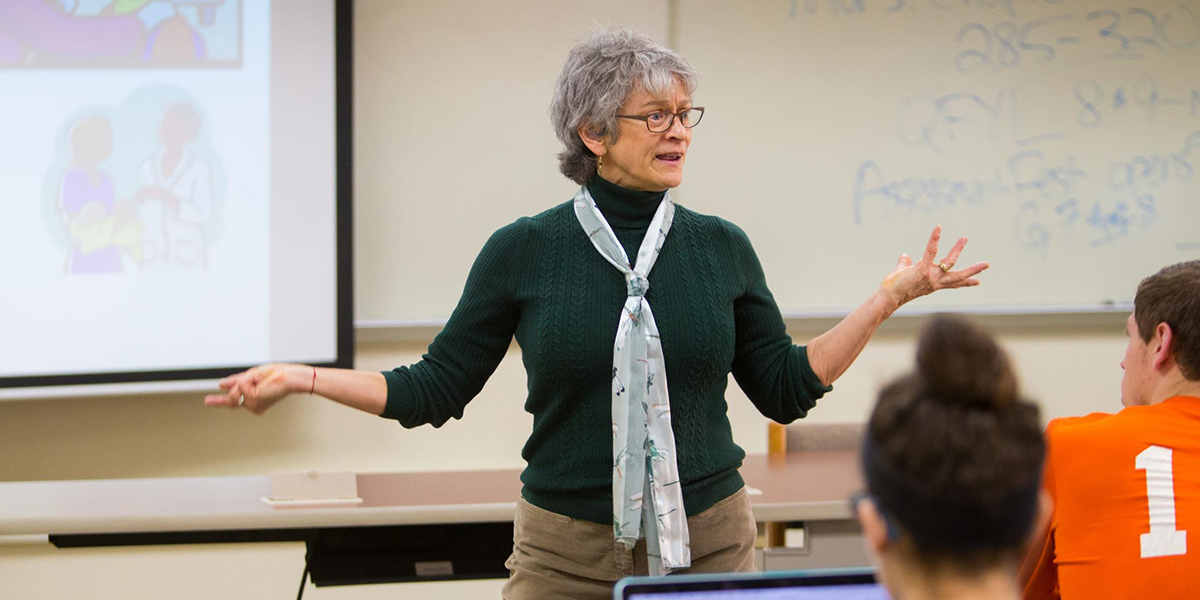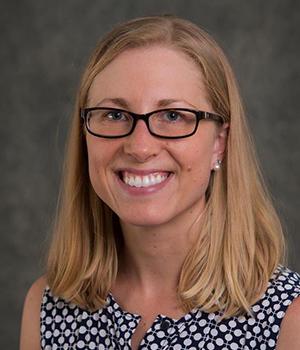
Adults aged 65 years and older are the fastest growing age group in the United States population. In fact, the older adult population is projected to double by 2060 and the number of Americans with Alzheimer's disease is projected to triple by 2050 (Population Reference Bureau, 2018).
On Thursday, Feb. 28, the University of Wisconsin-Platteville’s College of Liberal Arts and Education will host a faculty forum, “Making Memories for People with Alzheimer’s Disease,” in Room 136 Doudna Hall from 5-6:30 p.m. The forum will address issues related to the nation’s rapidly-aging population, including the biopsychosocial changes that accompany aging, particularly among those affected by Alzheimer’s disease or other dementias.
 At the forum, co-presenter Dr. Kameko Halfmann, assistant professor of psychology at UW-Platteville, will discuss biological and psychological changes that occur in Alzheimer’s disease as well as current research on the intersection of the brain, memory and emotions.
At the forum, co-presenter Dr. Kameko Halfmann, assistant professor of psychology at UW-Platteville, will discuss biological and psychological changes that occur in Alzheimer’s disease as well as current research on the intersection of the brain, memory and emotions.
“Recent research suggests that although the ability to form new explicit memories (for facts and events in life) declines in Alzheimer’s disease, individuals still have the ability to form new implicit, emotional memories,” said Halfmann. “Current and future research in the field of aging and memory is harnessing this idea to improve the quality of life among patients with the disease.”
Following, co-presenter Becky Fernette, lecturer of psychology at UW-Platteville, will address one of the most heartbreaking aspects of late-stage Alzheimer’s disease – the “disappearance” of the affected individuals as they lose their memory – by sharing a number of innovative, experiential approaches to re-engage those diagnosed with the disease, both in the present moment and with their pasts. She also will provide information about local programs and resources.
“We live in a rapidly aging society,” said Fernette. “Many of us have a relative with Alzheimer’s disease or a related dementia. Better understanding the challenges of an aging society will help inform how we socially engage with our community and how we design our surroundings to account for these demographic shifts.”
Halfmann’s graduate research focused on emotion and decision-making processes in older adulthood. Thought-provoking conversations with her grandparents, who are relatively healthy, and the recent experience of her grandfather progressing through Parkinson’s disease, fuel her interest in understanding age-related changes in emotion and cognition. Findings that emotional memories persist, even when concrete memories fade, inspire her to integrate what is currently known about aging with the performing arts to advocate for patient quality of life.
From 1989-1991, Fernette worked as a case manager for Bayfield County (Wis.) Department of Community Programs. In this position, she worked with several families affected by Alzheimer’s Disease. After her mother was diagnosed with dementia in 2002, Fernette was motivated to learn more about the disease. Since then, she has been an active member of the Grant County Dementia Care Network to raise awareness and provide information and support to the community. She also teaches Psychology of Adulthood and Aging at UW-Platteville.
The forum is free and open to university students, faculty, staff and community members. Refreshments will be served.
The LAE Faculty Forum Series, a program instituted in the fall of 2004, is sponsored by UW-Platteville’s College of LAE. The purpose of the forum is to allow faculty to present information in their research areas. Presenters tailor their presentations to a general audience.